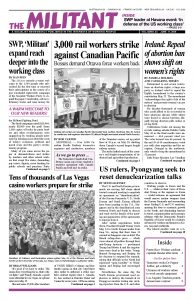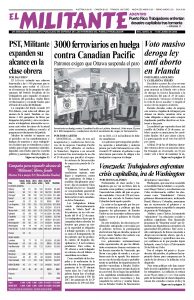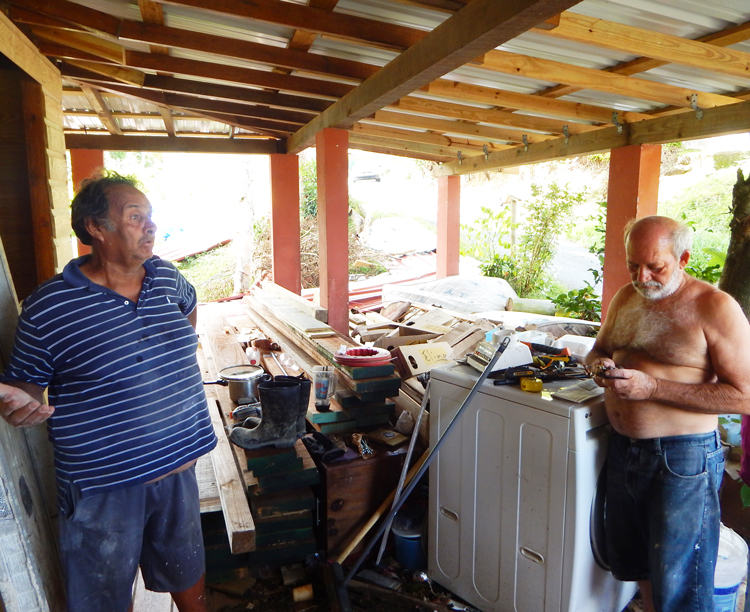HUMACAO, Puerto Rico — “After Hurricane María hit the island, the government left us to fend for ourselves. But here we all joined together — to clear debris and reopen the roads and to help make sure people could survive,” said Raúl Laboy, a retired electrical worker. “Residents brought food and water to those who needed it the most, took care of the elderly and disabled, and helped each other repair homes. It was solidarity — solidarity among workers.”
Together with other family members and friends, Laboy was helping rebuild his brother’s house, whose roof was ripped off and windows blown out by the hurricane last September.
Like a number of other workers in the hilly region here, he and Wilfredo Abreu took a break from their construction and carpentry work to talk with us, the editor and another reporter from the Militant, members of the Socialist Workers Party in the United States. We were visiting the community of Mariana, outside Humacao, and other areas in southeastern Puerto Rico that still have no electricity. The hurricane made landfall here.
Puerto Rico was devastated by the storm, which left most of the island without power. Many areas had no water or other essential services. Now, more than eight months later, Puerto Rico’s electric company reports that 13,000 customers — some 52,000 people — still had no electricity. That includes most of the 3,200 residents of Mariana, where electrical crews were just now beginning to show up.
“Now we’re facing the other hurricane — the social hurricane — which is much worse than the natural one and began much earlier,” said Laboy. “That is the result of capitalism.
“And the fiscal control board imposed by the U.S. government is still insisting on cutting social benefits, closing schools, increasing university tuition and other cutbacks in order to pay the bondholders on Puerto Rico’s debt,” he said.
Laboy is one of the founders of ARECEMA, the Recreational and Educational Community Association of Mariana, whose leaders toured us around the area. He was a shop steward in UTIER, the electrical workers’ union, a long-time socialist, distributor of Claridad and supporter of revolutionary Cuba.
During our visit to San Juan, Humacao and Yabucoa, we met workers, fishermen, students, retirees and others who described how they are confronting the social disaster caused by capitalist rule and magnified by U.S. colonial domination of Puerto Rico. They described how they came together to help each other — organize demonstrations demanding rapid restoration of electrical power, protest planned school closings and other actions. A fuller report will appear in next week’s Militant.



